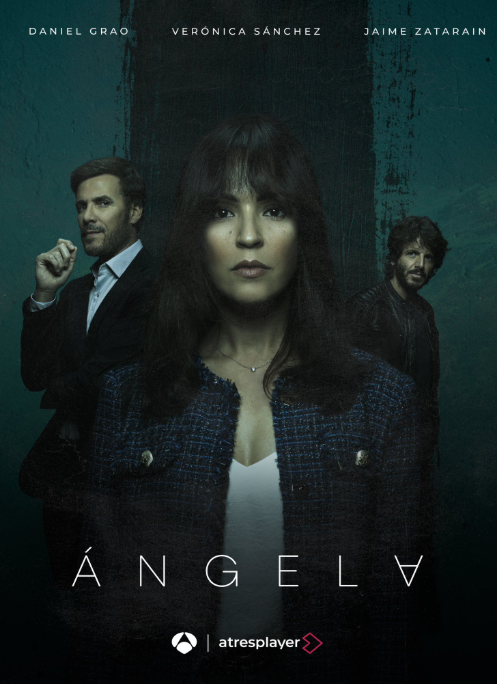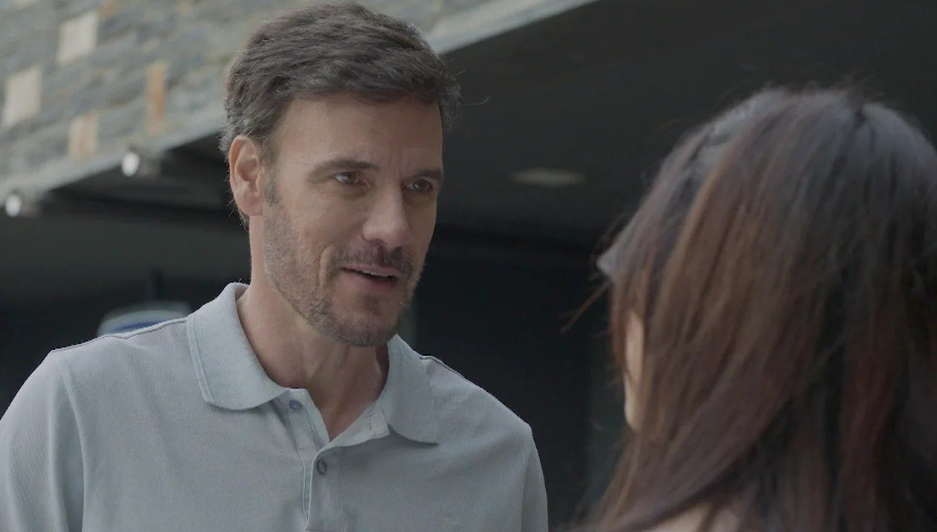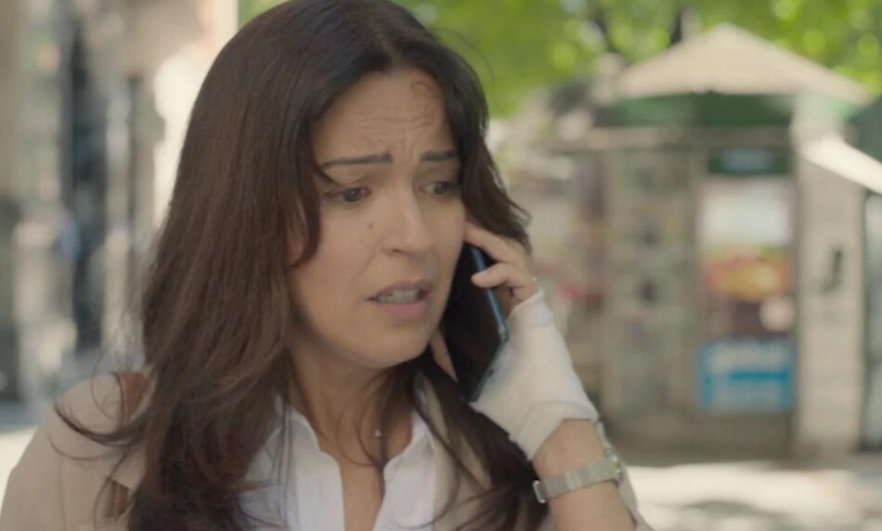About Ángela, from Netflix
Released in July 2024 in Spain and arriving on Netflix in Brazil and Mexico in mid-2025, Ángela is a suspense miniseries directed by Tito López-Amado and starring Verónica Sánchez.
The series, adapted from the British thriller Angela Black (2021), was written by Sara Cano and Paula Fabra and is composed of six episodes.

Set in typical Spanish daily life, Ángela follows a woman leading what appears to be a perfect life (a stable marriage, two daughters, financial comfort) while hiding a severe history of emotional and physical abuse inflicted by her husband.
The turning point comes with the arrival of Edu (Jaime Zataráin), a childhood friend who appears to offer a possible way out. However, things do not unfold as you might expect.
Critic’s Insights
Positive Points
- The series hit the top position in Netflix's global ranking, surpassing productions like Squid Game and The Sandman, despite lacking a significant promotional campaign.
- Ángela stands out for its psychological depth and emotionally intense, claustrophobic atmosphere. It provides engaging suspense from the beginning, with a well-crafted sense of mystery and strong character development.
- Verónica Sánchez's performance has earned widespread acclaim for being intense, authentic, and capable of carrying the emotional weight of a story centered on domestic abuse and the struggle for independence.

Negative Points
- The slower pacing proves divisive among viewers. Some perceive the protagonist as too passive, allowing others to drive the story forward.
- Although it performed well with audiences, some critics have pointed out instances of overly dramatic moments and occasional lack of realism.
Reflection: Themes explored in the series and why they matter
More than just an engaging psychological thriller, Ángela takes on urgent themes such as emotional abuse, manipulation, psychological control, and the silence many domestic violence victims endure. It sheds light on how seemingly perfect lives can conceal relationships riddled with fear, loss of independence, and emotional dependency.
According to the World Health Organization, one in three women in Europe has experienced physical or sexual violence from an intimate partner. Similarly, the CDC in the United States reports that over 43 million women have endured psychological abuse at some point in their lives. These statistics highlight that Ángela's story is far from unique.
Depicting this type of violence in fiction does more than raise awareness; it brings visibility to an issue that is too often ignored or downplayed. Domestic violence does not always manifest through loud arguments or visible injuries. Sometimes, it is hidden in silences, subtle threats, financial control, or the lack of autonomy in daily decisions. Ángela portrays these realities with emotional accuracy.
The series captures how victims feel... isolated, confused, afraid, and burdened by guilt. On multiple occasions, Ángela hesitates to act or report her situation, not because she accepts the abuse but due to fear of the potential consequences. She fears losing her daughters, not being believed, or being judged. This is the harsh reality faced by many women, the fear that seeking freedom might leave them in an even more vulnerable position.

Verónica Sánchez delivers this anguish with a nuanced and powerful performance, embodying the pain of someone who is aware of the danger but cannot see a clear escape. Through Ángela’s internal struggles, the series invites viewers to empathize with those trapped in such circumstances. Above all, it underscores how understanding, support, and breaking the silence can be life-saving.
Personal Analysis
Ángela offers a compelling psychological thriller, blending emotional tension with a stark critique of a grim reality. The series depicts how domestic violence hides in plain sight - in the cracks between polished appearances and fearful silences, in forced smiles over elegant dinner tables, and in the quiet trauma of survival.
Verónica Sánchez anchors the story masterfully, portraying a protagonist who appears composed on the surface but is broken inside. Her performance brings life and depth to this duality, delivering a sensitive and profound portrayal of a woman enduring an abusive relationship.
The slower pacing might feel challenging at times, particularly for audiences accustomed to fast-paced drama or action. However, this deliberate tempo allows the suspense to grow through small details, unspoken moments, and subtle choices. While the storyline occasionally slips into clichés or dramatized moments, it remains a poignant exploration of resilience and the painful process of breaking a cycle of violence.

Conclusion: Is Ángela worth watching?
If you are drawn to well-constructed psychological thrillers with emotionally rich performances and thematic depth, Ángela is a worthwhile choice. It may not appeal to those who prefer a faster pace or constant action, but it delivers genuine emotional impact with a careful and necessary portrayal of a timely and personal issue. It is a gripping series that, for me, held my attention from the very beginning.
Thank you for reading this far. Share your thoughts about the series in the comments!












— Comments 0
, Reactions 1
Be the first to comment